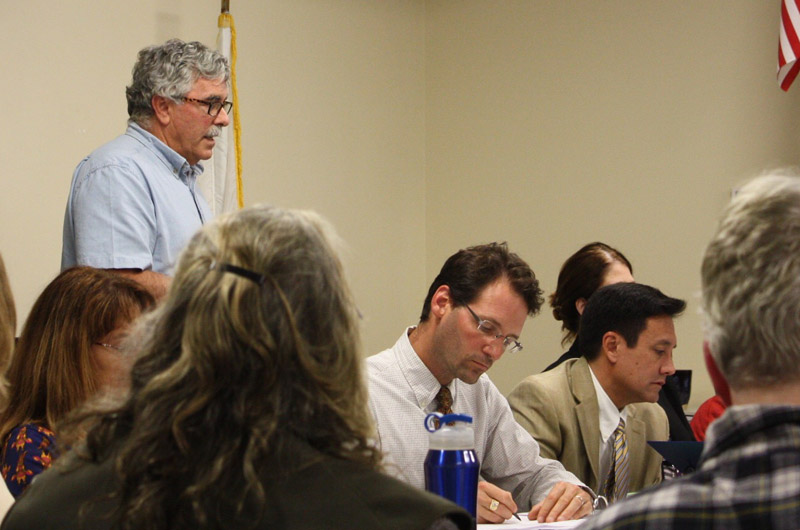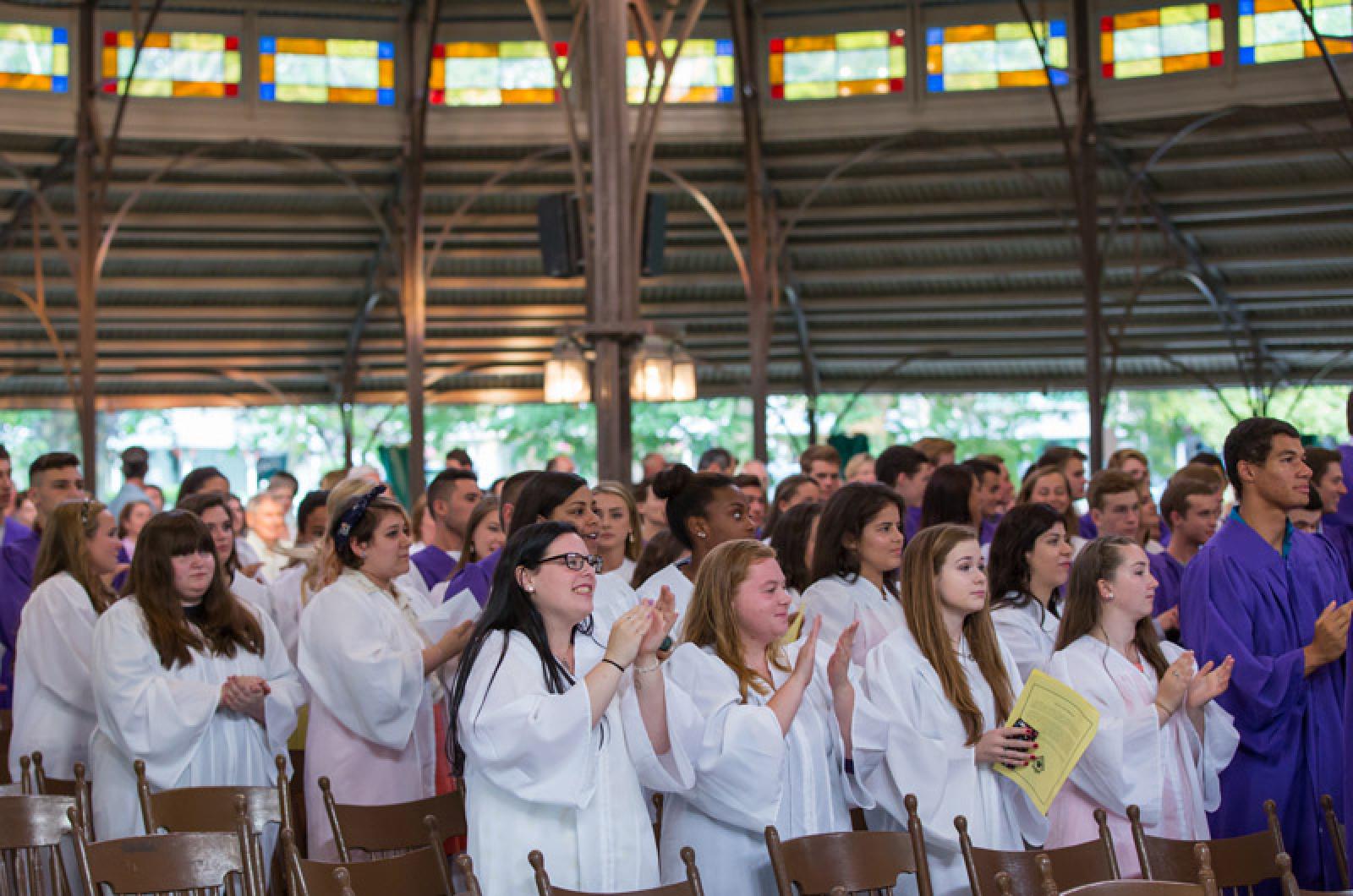Last year’s graduating class scored fourth highest on the SATs in school history, director of guidance Michael McCarthy told the regional high school district school committee this week.
The class of 2015 outperformed their peers on a state and national level on all three subsets of the Scholastic Aptitude Test (SAT). Eighty-two per cent of the students took the SAT; 69 per cent were accepted at a four-year college.
Mr. McCarthy said scores across the commonwealth are routinely strong. “We’re one of the hardest states to get [National Merit Scholar] in because the selection index is so high,” he said. “Our kids perform so well on the testing in the state of Massachusetts that it pushes that selection index up, so that’s really an accomplishment.”
To qualify for the National Merit Scholarship, students must outperform their peers on the preliminary SAT/National Merit Scholarship qualifying test.
The average score in critical reading on the SAT for high school seniors last year was 542, compared with the national average of 495 and state average of 516. In math, the high school average score was 533, compared with a national average of 511 and a state average of 529. In writing, the average score here was 515 compared with a national average of 484 and state average of 507.

This year’s senior class will be the last to take the SAT in its current form; juniors will take a new edition in the spring.
On a related topic, Jared Livingston, the school’s only National Merit Scholar semifinalist this year, spoke to the committee about a school policy that limits the number of Advanced Placement classes seniors are allowed to take. AP classes are college-level courses taught in the high school. Students take an AP exam in May and the scores from those exams may allow them to place out of classes at some colleges. Currently, seniors are only allowed to take three AP courses. The policy was decided on five years ago, but just came into practice with this year’s senior class.
“I believe that the reason it’s in place is to limit the work load, so no student gets overcome with too much work,” Mr. Livingston said. “While that could be understandable, I believe if you’re in that level class, you should know your limits. If you’re going to be taking these AP level classes, you should know when to stop.”
With the consent of interim principal Margaret (Peg) Regan and Mr. McCarthy, Mr. Livingston has worked around the policy to take two extra AP courses, though not for AP credit.
“There is an exception to every rule and every policy we make and Jared is one of those students who really doesn’t care about the weight or the transcript but really wants to study at that advance level,” said Mrs. Regan. “So he’s making us rethink the whole policy in terms of who else might be an exception to the rule.”
Mr. Livingston said he is not the only student with a preference for AP classes.
“I know there are several if not many students in my grade that would take more than three if it was allowed and would excel in those classes,” he said. “The way the system is set up right now, the AP classes are just the next steps in the process, so if you’re not allowed to take the AP class, you can’t progress as much in your education.”
Leigh Hammond, a student representative to the school committee, agreed with Mr. Livingston and said she had heard about student dissatisfaction over the limit on AP classes.
“I know a lot of students were really curious and they didn’t get the answers they deserved, because we just went to guidance and they were like, no I’m sorry you can’t take that class and everyone was like why, we want to,” she said. “I just think student input would have been really different than what any administration or parents thought, because I know a lot of kids were really upset about it.”
Mrs. Regan called it a conundrum.
“I don’t know if we anticipated the impact on your particular class, so we are relooking at it, because we do feel that there has to be a place for a parent, a student and a teacher to say absolutely this student should be in AP math, English, science and social studies,” she said. “Jared, to me, is a pioneer because he’s also refusing to take the weight, he just wants the curriculum, and that is the ideal motive.”
In other business, the committee voted in favor of allowing the boys junior varsity hockey team to include eighth graders this year. Committee member Robert Lionette reiterated his strong concerns over the disparity in physical maturity between eighth graders and other boys they would be playing against.
“I think there is a clear line here in our practices and I think it’s there for a reason,” he said.
Other committee members disagreed. Jeffrey (Skipper) Manter 3rd said some of eighth graders are bigger than some of the freshman boys.
“I hate to see a child that is capable of playing, not having the opportunity,” said Mr. Manter, before moving to allow the practice.
Coach Mark McCarthy assured the committee that the high school positions will be filled before any eighth graders are placed on the team.
Vineyard schools superintendent Dr. Matthew D’Andrea updated the committee on a time line for the school principal search, which he hopes to complete before the end of the year. Mr. D’Andrea said he is forming a search committee within the week; the job will be advertised until Oct. 23. The school is also faced with a small gap in assistant principals as Andrew Berry is retiring Dec. 30. Though an interim position has been posted, it is possible the school will continue without an assistant principal for the second half of the school year and begin a permanent search with the new principal.
Mr. D’Andrea also introduced the new facilities director, Michael Taus.
The next committee meeting will be Nov. 2.




Comments
Comment policy »